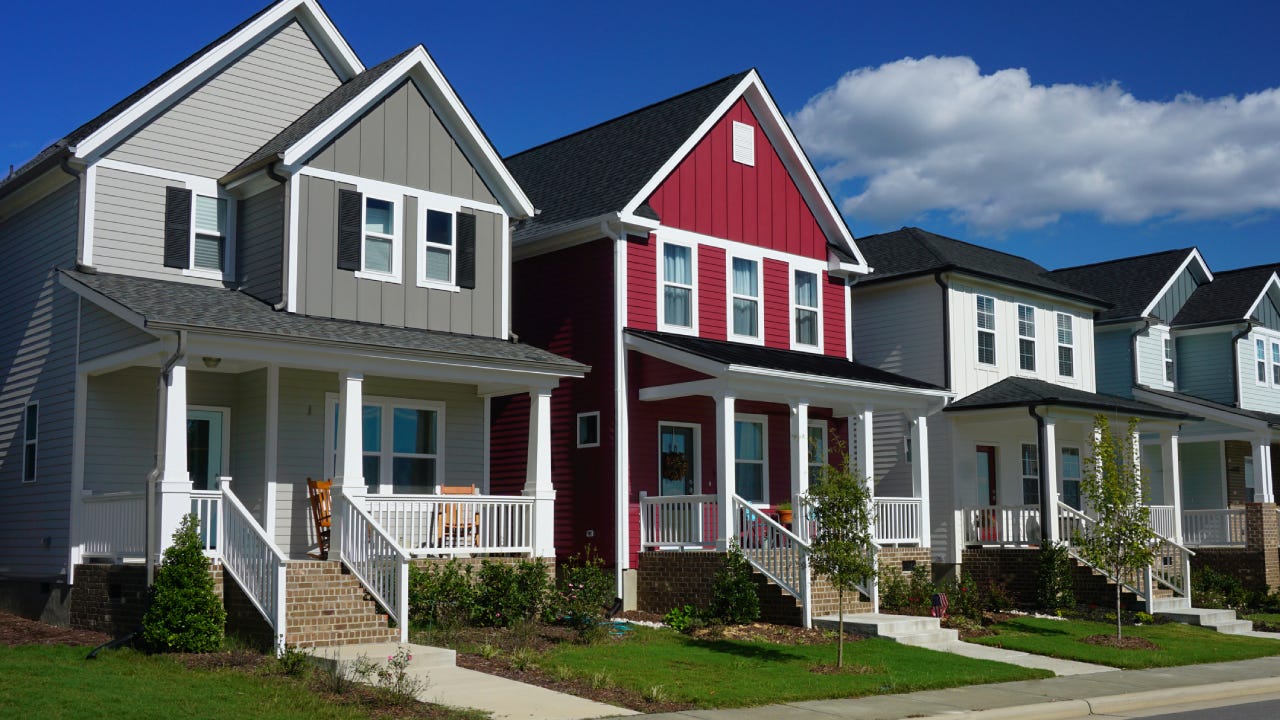The Future of Real Estate: Fads and Opportunities to See
As the property landscape advances, it comes to be progressively vital to comprehend the arising fads and opportunities that will specify the market in the coming years. Technical innovations are reshaping transactional procedures, while a growing emphasis on sustainability shows transforming customer top priorities. Furthermore, market shifts and the rise of remote job are affecting real estate choices, particularly in country locations. With these dynamics at play, a better assessment of the adjustments and strategies needed for success exposes interesting opportunities that could reshape investment approaches and market behaviors.
Technological Advancements in Realty
Recently, the realty market has actually accepted a wave of technological technologies that are transforming standard methods. These innovations have actually substantially boosted effectiveness, openness, and decision-making procedures within the sector. Among the most significant advancements is the rise of huge data analytics, which permits realty specialists to examine market trends, forecast residential or commercial property values, and identify financial investment possibilities with extraordinary precision. This data-driven technique enables stakeholders to make enlightened decisions and minimizes the risks linked with building purchases.
In addition, digital fact (VR) and boosted reality (AR) innovations are changing building marketing by providing immersive experiences for potential purchasers and lessees. These devices permit customers to perform online excursions of residential or commercial properties, consequently streamlining the search procedure and boosting consumer interaction. In addition, blockchain modern technology is gaining traction as a way to safeguard purchases and keep clear records, thus reducing fraud and accelerating the closing procedure.
Smart home technologies are likewise becoming progressively common, making it possible for home owners to keep track of and regulate their properties remotely (Real Estate Lockhart). Collectively, these technological developments are reshaping the landscape of realty, cultivating an extra efficient, clear, and customer-centric market
Need for Lasting Features
As customers progressively focus on environmental duty, the need for sustainable residential properties has actually risen in the real estate market. This shift mirrors a wider social pattern toward sustainability, with investors and property buyers seeking residential properties that lessen environmental effect while maximizing power performance. Attributes such as photovoltaic panels, energy-efficient home appliances, and lasting structure materials are currently viewed as necessary instead of optional.

Furthermore, the rise of eco-friendly areas, which prioritize walkability and accessibility to mass transit, additionally emphasizes this fad. These advancements interest ecologically aware buyers and advertise a much healthier way of life.
As the demand for sustainable buildings remains to rise, sector stakeholders have to adapt to these expectations. By focusing on and welcoming ingenious methods sustainability, the real estate industry can not just meet consumer demand but likewise add to a much more lasting future.
Transforming Buyer Demographics

In addition, the aging population is reshaping demand for real estate. Child boomers are looking for scaled down homes that provide availability and low maintenance, typically favoring urban setups with neighboring services. This change demands a concentrate on multi-generational real estate options that suit differing needs.
Additionally, cultural variety is playing a crucial role in property trends. Customers from various histories bring distinctive choices and assumptions, triggering designers to produce inclusive environments that satisfy a broader audience. As these market shifts remain to progress, property experts have to adapt their approaches to deal with the needs of these diverse buyers. Recognizing these transforming demographics will be critical in identifying crafting and arising possibilities customized marketing see this site methods that resonate with the varied demands these days's market.
Rise of Remote Job Influence
Progressively, the surge of remote job is transforming the realty landscape, motivating significant shifts in purchaser choices and area choices. As workers appreciate the flexibility of working from home, lots of are reviewing their property demands, leading to a rise popular for homes in suburban and country areas. This pattern is largely driven by the wish for even more large living atmospheres that can accommodate home workplaces and a much better quality of life.
Moreover, city centers, once the focal factor for purchasers, are witnessing a progressive decline sought after as individuals prioritize affordability and accessibility to nature. Genuine estate designers and financiers are moving their focus toward buildings that use home workplace rooms, exterior facilities, and proximity to necessary solutions.
This advancing landscape necessitates a reevaluation of standard market approaches. Property experts must adapt to the transforming preferences of buyers, highlighting the significance of way of living consider their marketing methods. On top of that, home builders are significantly focusing on flexible floor plans that accommodate the double needs of living and working, making certain that they remain affordable in a quickly transforming market. The implications of remote job on realty are profound, shaping future fads and opportunities.
Financial Investment Opportunities in Emerging Markets
Investment opportunities in emerging markets are regularly attracting attention from investor seeking diversity and growth capacity. These markets, identified by rapid financial growth, enhancing urbanization, and an expanding middle course, present special prospects for wise financiers. Countries in Southeast Asia, Africa, and Latin America are observing significant infrastructure renovations and beneficial government plans, which further boost their charm.
Realty sectors such as household, business, and logistics are experiencing enhanced need because of urban movement and advancing customer preferences. Especially, cities like Ho Chi Minh City, Nairobi, and Medellín are ending up being hotspots for investment as a result of their broadening economic climates and youthful demographics.
Capitalists need to carry out complete market analyses to determine essential trends, such as changes in my sources population characteristics and economic security, which can affect residential or commercial property worths. Furthermore, collaborations with neighborhood genuine estate firms can promote successful access and navigation in these markets.
Nonetheless, it's critical to be conscious of possible threats, consisting of political instability and regulative challenges. By weighing these variables and taking on a long-term perspective, capitalists can successfully utilize on the rewarding opportunities arising in these creating regions.

Conclusion
To conclude, the future of real estate will be significantly influenced by technological developments, an expanding emphasis on sustainability, and advancing customer demographics. The rise of remote job is reshaping housing choices, especially in suburbs. Arising markets existing significant investment opportunities for stakeholders willing to adapt to these modifications. Navigating this transforming landscape will need tactical partnerships and a keen understanding of market dynamics to profit from the trends forming the industry.
As the genuine estate landscape evolves, it ends up being significantly necessary to comprehend the arising trends and possibilities that will specify the sector in the coming years. One of the most notable advancements is the surge of big information analytics, more information which allows genuine estate specialists to analyze market fads, anticipate building values, and recognize investment possibilities with unmatched accuracy.As customers increasingly prioritize ecological duty, the demand for sustainable residential properties has actually surged in the real estate market. The implications of remote job on actual estate are profound, shaping future patterns and possibilities.
Investment opportunities in arising markets are consistently attracting focus from genuine estate investors seeking diversity and growth possibility.